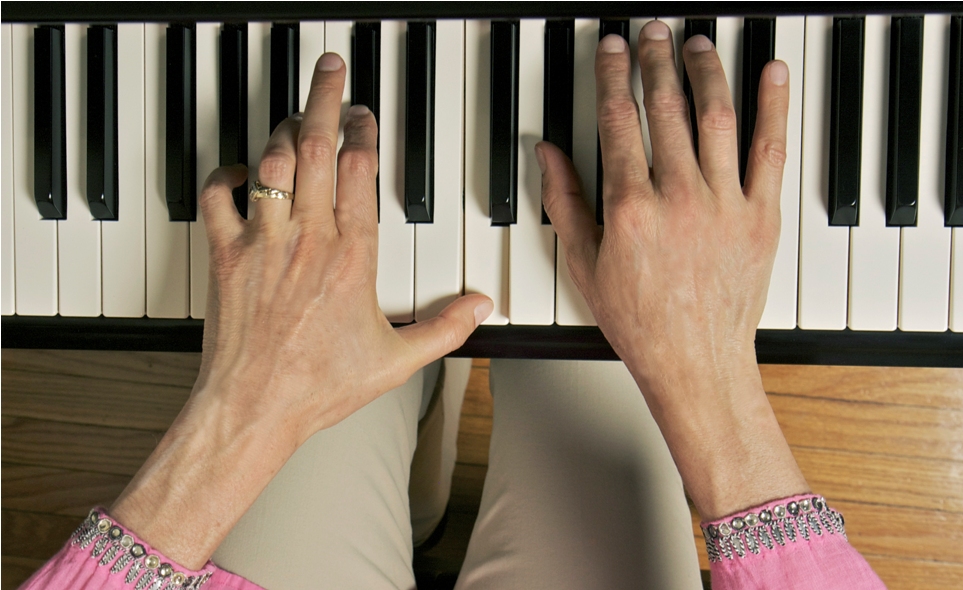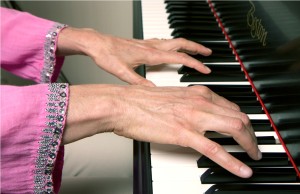You have assembled a short list of candidates and taken a trial lesson from each. Now it is time to make a decision. In this third of three articles in my series on how to find a good piano teacher, I describe how to zero in on the teacher that is the best fit for you.
Don’t rush to any conclusions
Uncertainty can be stressful, particularly when it comes to the piano, an oasis in your life. As a result, you may want to charge towards a final decision simply to relieve yourself of the chaos. Remember that taking lessons from a handful of teachers gives you a panoramic perspective that you won’t have once you settle with one.
In my case, each time after I walked out of a trial lesson, I exclaimed to myself, “This is the one!” I began planning the details of my study with the said teacher, ignoring that I was in conversations with several others. The better part of myself had to counsel patience. As it turned out, my search took almost three months.
Watch out for negative hooks
Since founding Grand Piano Passion™, I have met many adult piano students who experienced childhood trauma connected with the piano, whether from a parent or teacher, in fact so many that the number has stunned me. If this description fits you, realize that you could be attracted to a teacher that is not right for you because the teacher’s suboptimal behavior is familiar. The best way to avert this risk is to make your decision in a measured way.
One very highly regarded teacher I met had few positive comments on my playing. As in the case of others, she was concerned about how I used my hands and body, although she expressed her reservations more vehemently. When I walked out of her studio, I knew that her blunt style evoked a bad time from my adolescence, those years when my mother became increasingly critical of my abilities while I nonetheless was maturing into my playing. Yet for a week following the lesson, I actually thought I would study with this teacher until I came to my senses.
Eliminate the nos first
As a first step in selecting your teacher, eliminate the two or three from your list that you are confident are not for you. Often, it is easier to articulate first who does not fit with your desired characteristics. In my case, I was able to cross off the teacher who found teaching adults “fun”—I wanted a more rigorous approach—as well as the critical soul I initially found so appealing. Now I was left with two candidates, and the decision became gnawingly difficult.
Talk over the choice with friends and family
Once you are down to your final two or three candidates, you may find it helpful to discuss your decision with people who are close to you. Describe what you enjoyed about your trial lessons, and also surface any concerns. If you are a perfectionist (count me in), it’s natural to fantasize that your new teacher will dissolve the issues that plague your current study. Catalogue the teacher’s strengths and weaknesses; otherwise your concerns might fester and surface months later during your study.
At this point during my search, I became fairly obsessed with the choice between two teachers, which I discussed almost every night with my husband for a couple of weeks. Luckily, he is a patient listener. Around this time, I also hosted a small piano party for the holidays with other adult amateurs. I hammed it up with a funny anecdote on the blunt teacher, yet I also found my friends’ reactions helpful.
Trust your instincts
At this point, you have done all of your research, and it’s time to decide between the two or three stellar teachers who remain on your list. It’s not easy, because your piano teacher is a cherished partner. Go ahead and review your criteria once more and any notes you have made from your trial lessons, but then I would recommend that you go with your gut. Sit down at the piano and ask yourself, “With whom do I want to study?” Trust the answer.
In my case, I chose Mark Pakman, an adjunct professor in Montclair State University’s music department. In addition to diploma students, he teaches a number of talented and committed amateurs. During the trial lesson, I liked Mark’s combination of musical interpretation and theory. With his expectations for practice, I felt he would get me as close to a conservatory experience as possible with my limited schedule as an adult piano student.
Inform teachers of your decision
The first person to call is your previous teacher, so that he or she learns of your decision directly from you and not the grapevine. Thank your teacher one more time for the years of study you had together. Next, circle back to all of the teachers who gave you a trial lesson. Email may suffice, although I would recommend the personal touch of a voicemail. Thank them for their time and let them know whom you selected. For any close runners-up, I would recommend scheduling a quick call. Take the time to talk over the decision. Five years down the line, this person might become your next teacher.
I wish you the best of luck in your search for a good piano teacher.





0 Comments